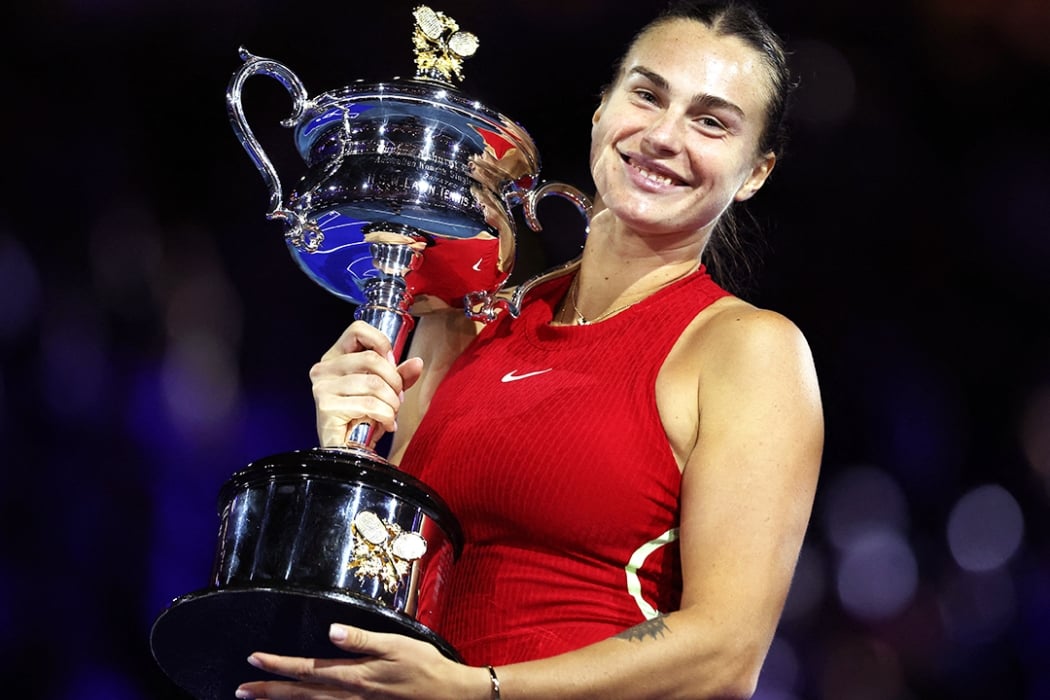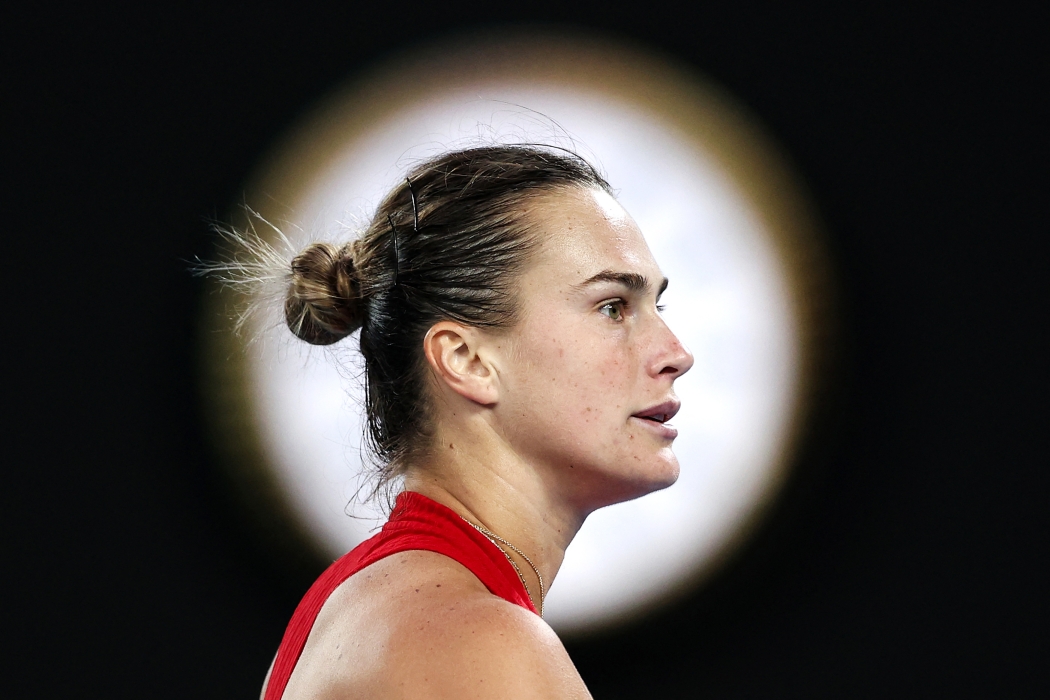Pretty much from the first point Aryna Sabalenka played at Australian Open 2024, she looked a likely champion.
The 2023 winner became the first woman to defend her AO title in more than a decade, and she has now won 28 of her past 29 sets at Melbourne Park.
MORE: All the stats from the AO 2024 women’s final
Sabalenka has built a 14-match winning streak at the tournament and is also undefeated in her past 14 matches at Rod Laver Arena, her last defeat on that grand stage coming in the fourth round of AO 2021.
All the tools that took her to her second major title – booming serve, overwhelming groundstrokes, and ruthless efficiency – were on display in a clinical final outing against 12th seed Zheng Qinwen on Saturday night.
MORE: Rod Laver Aryna - Sabalenka does the double
She outplayed the emerging star 6-3 6-2 – and here’s how the final played out in her favour.
Serving prowess
Coming into the match, Zheng was well clear in No.1 spot as the women’s tournament ace leader.
It’s not that her serve was a liability on Saturday night, it’s just that Sabalenka outserved her in almost every other way imaginable.
The world No.2 landed two-thirds of her first serves – Zheng managed just over half – and dropped only six points on her first delivery for the entire match, for an 84 per cent success rate.
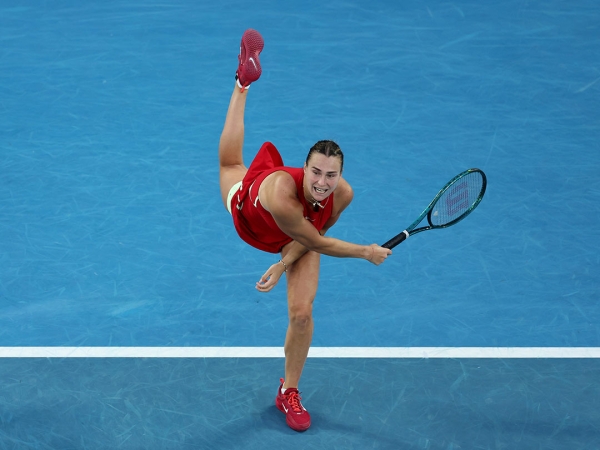
Her fastest serve clocked 189 km/h and her first serve averaged almost 10 km/h faster than Zheng’s.
Sabalenka was never broken during the match and in seven of her nine service games wasn’t even taken to deuce. It could have been eight of nine, given she led 40-0 when serving for the match.
A minor wobble ensued, when Zheng saved three championship points and went on to earn a break point – which Sabalenka erased with an ace.
Two points later, she completed her title defence.
Sheer weight of shot
An interesting stat to emerge from the final was Zheng leading the winner count.
She finished with 19 to Sabalenka’s 14 – Sabalenka’s lowest tally in any of her seven matches this fortnight, and also the only one in which she did not hit more winners than her opponent.
But she didn’t need to, given the weight and depth of her rally balls were often too much for Zheng to control.
Not long after Sabalenka pocketed the first set in 33 minutes, WTA Insider tweeted: “Clinical, methodical tennis from Sabalenka tonight. Big targets, relying on her depth and pace to keep Zheng at bay. Just 6 winners so far tonight but in full control from the baseline.”
This approach forced Zheng into error 32 times throughout the match – double her tally of 16 unforced errors and significantly greater than Sabalenka’s forced error count of 13.
Short and sharp
Sabalenka’s superior groundstroke power also helped her play the points on her terms.
A noticeable element in this final was the lack of long rallies; just three for the entire match extended more than eight shots.
By contrast, 84 points fell in the 0-4 shot range.
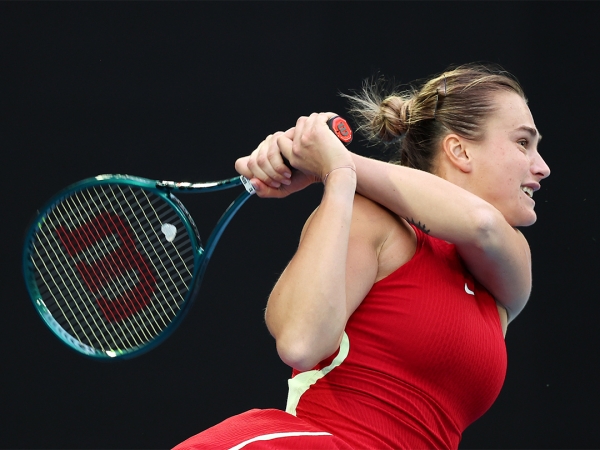
This cadence certainly did not suit Zheng, a player based in Barcelona who, while aggressive and powerful, is more comfortable constructing longer points on clay.
The average rally length of Zheng’s seven Australian Open 2024 matches was 3.39 shots; the final was just 2.84.
Perceived pressure
Facing a serving onslaught and power from the back of the court, and not playing points on her terms, Zheng was rarely allowed to feel comfortable in Saturday night’s final.
And as a result, cracks understandably appeared in her game.
She double-faulted six times – Sabalenka did not once – and finished with a combined error count (forced and unforced) of 48, compared with Sabalenka’s 27.
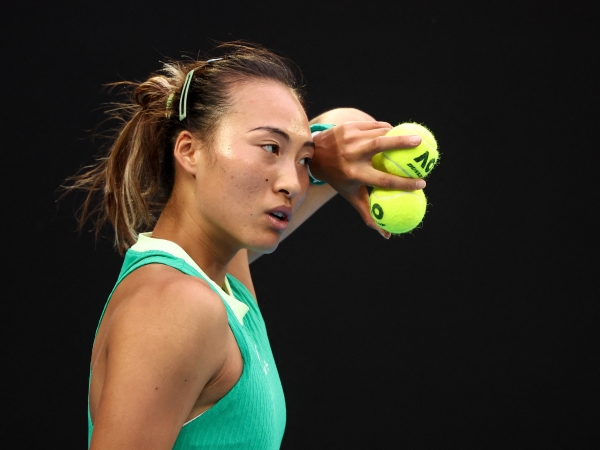
It ran away from her quickly, and at just 76 minutes, it was her second-shortest match of the tournament.
By contrast, it was Sabalenka’s second-longest, and it iced the cake on a truly dominant, resounding fortnight of Grand Slam tennis at Melbourne Park.
